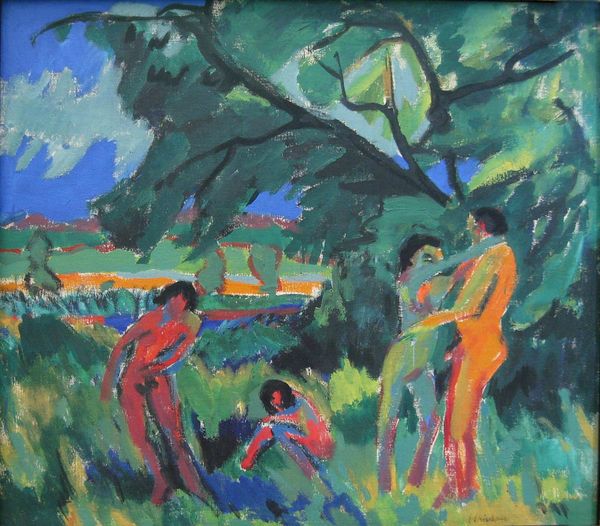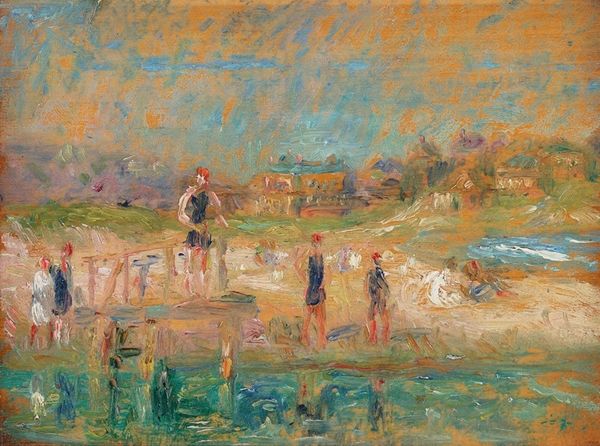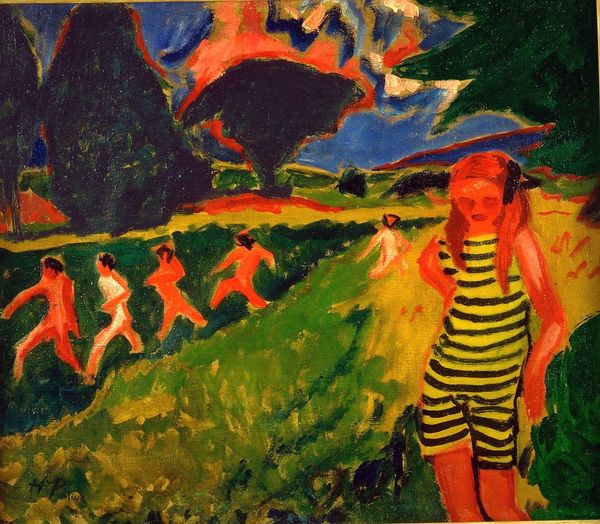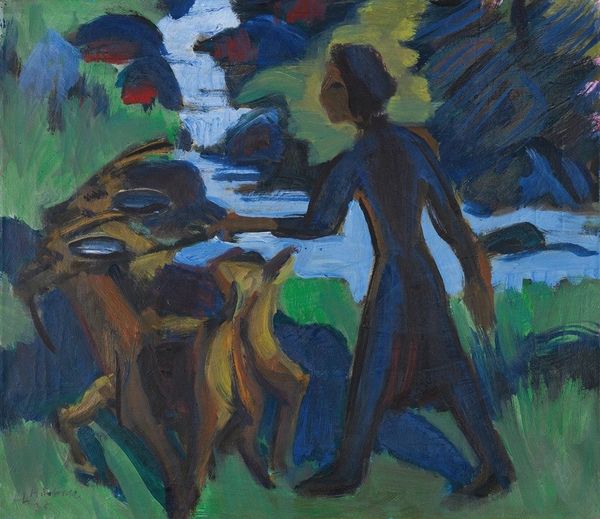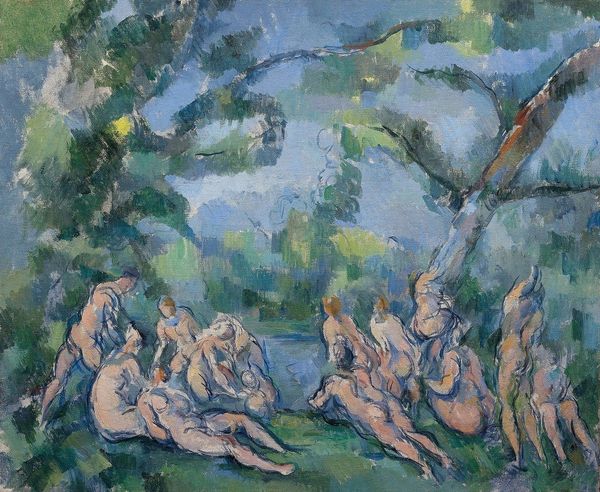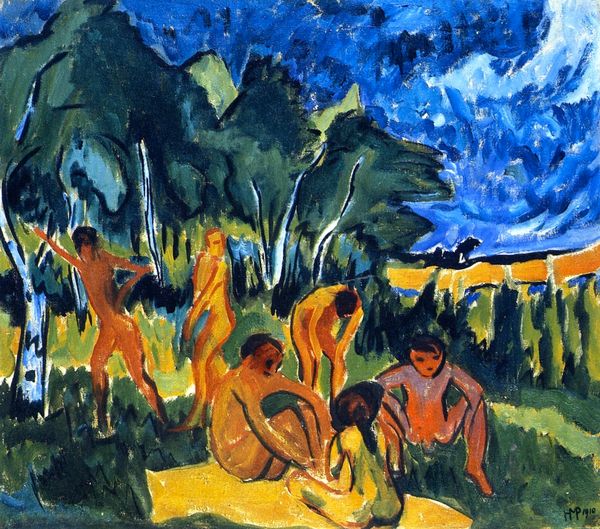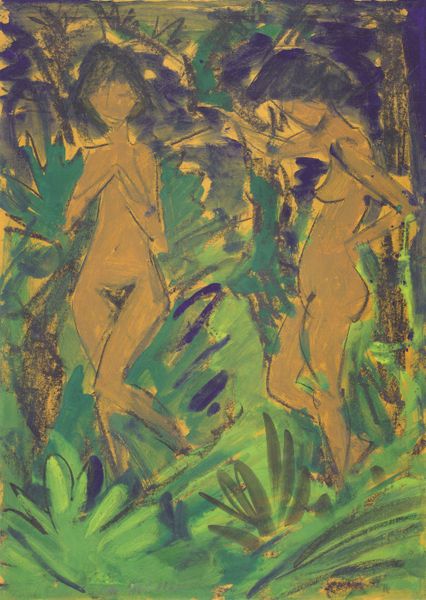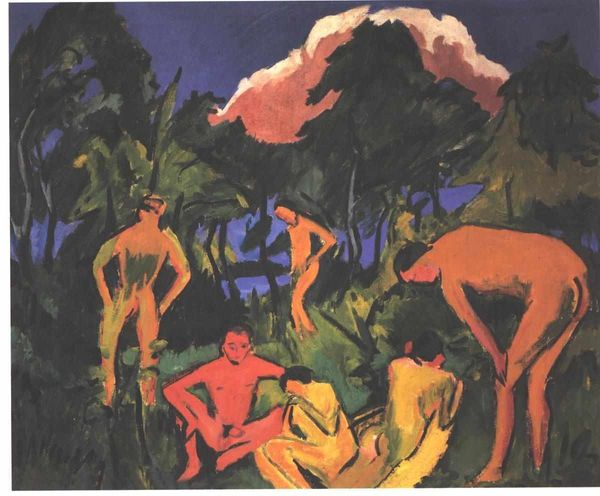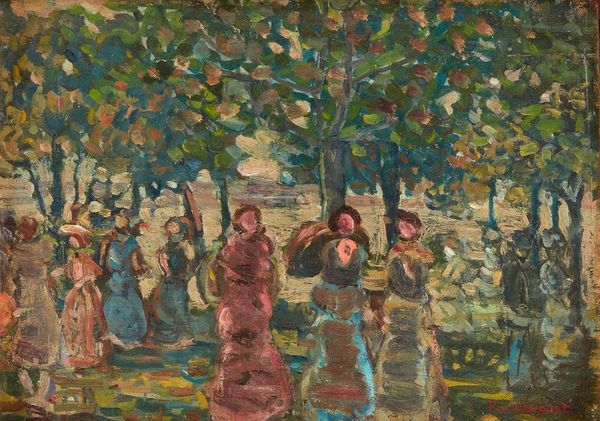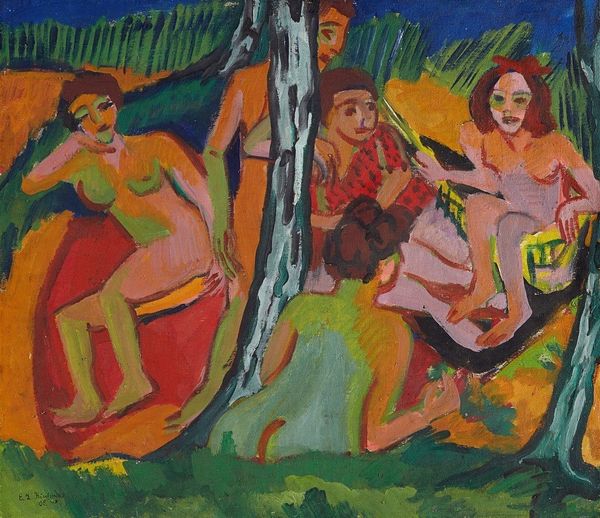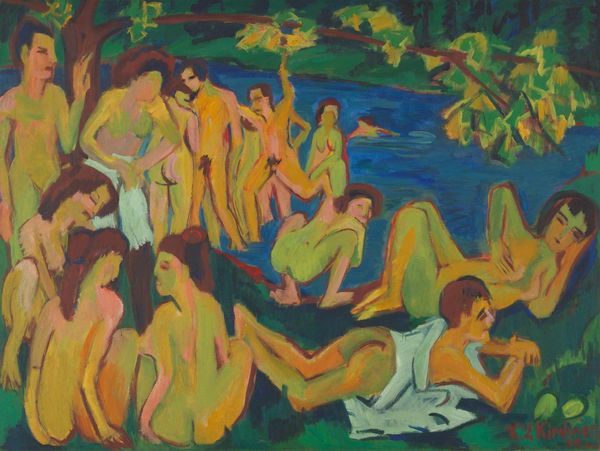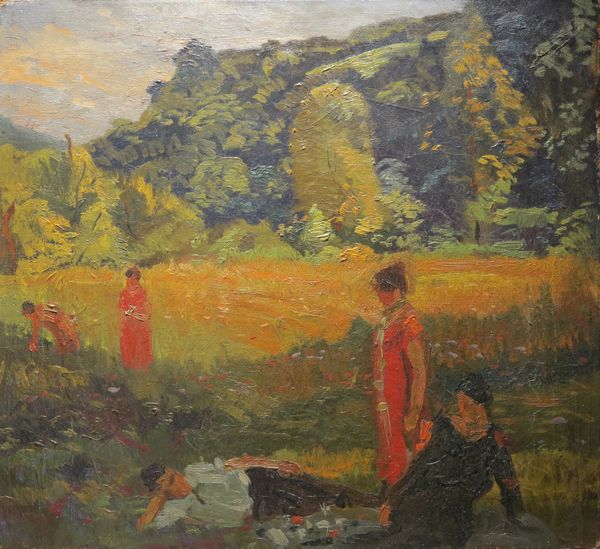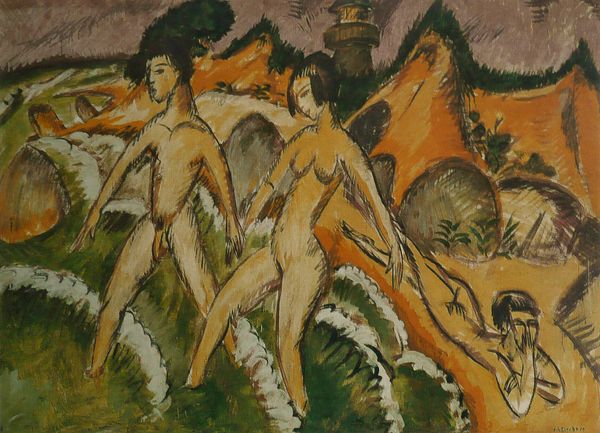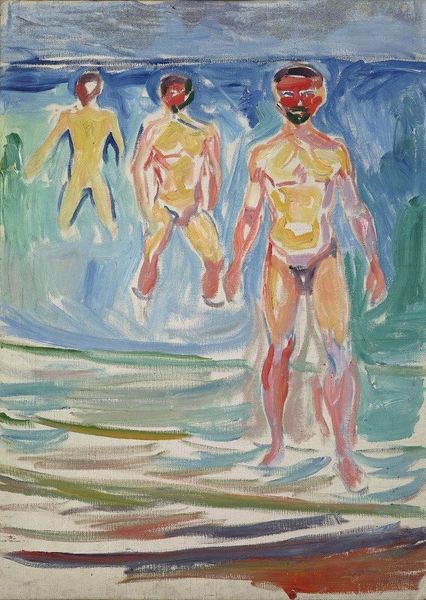
plein-air, oil-paint
#
fauvism
#
fauvism
#
plein-air
#
oil-paint
#
landscape
#
german-expressionism
#
figuration
#
expressionism
#
nude
#
expressionist
Copyright: Public domain US
Curator: What a vibrant canvas! The riot of color really leaps out. Editor: Absolutely. We're looking at Erich Heckel's "Bathers in the Reeds," painted in 1910. It exemplifies his expressionistic, plein-air style. The choice of oil paint lends itself nicely to the rendering of bodies in the landscape. Curator: Immediately, the angularity strikes me. The forms are reduced to near geometric shapes. How do you think this visual language speaks to its social moment? Editor: Considering that Heckel was a founder of Die Brücke, a group that championed raw emotion and rejected academic constraints, I’d say this piece reflects that ethos. The very application of paint mirrors a fast, frenzied execution reflecting a raw response to modernity and a challenge of societal constraints around nudity. It's not about precise representation; it's about conveying primal experience. Curator: I appreciate that you touch on its thematic elements. Looking at the composition—the stark contrasts between light and shadow, the way those nude figures seem almost violently placed within that equally bold landscape—suggests a powerful tension. What strikes me is how he has built those contrasts through the deliberate color choice and brushwork, creating what reads as disharmony between figure and setting. Editor: And there is definitely labor embedded in that perceived discord. The deliberate strokes and choice to embrace Fauvist coloring demonstrates the conscious activity of breaking down these perceived dichotomies in the service of pure emotive expression. To me, this speaks to his rejection of industry by instead favoring engagement with his natural surrounding. Curator: Perhaps, but its unsettling intensity can't be ignored. Ultimately, for me, it’s the painting’s internal structure, and the palpable tension it builds through color and form that gives the piece its enduring power. Editor: Right, but it also evokes the anxieties around burgeoning industrialization that were consuming Europe during this period by idealizing a life disengaged from capitalism through subject matter and physical production. Curator: True, it presents such a vivid paradox: a yearning for harmony expressed through intentionally disharmonious means. Editor: Well put. A productive tension that brings to the forefront of consciousness those questions, and speaks directly to a historical moment fraught with economic and societal transitions.
Comments
No comments
Be the first to comment and join the conversation on the ultimate creative platform.
